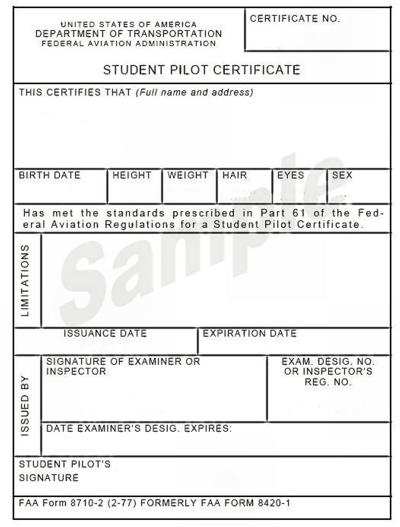Wed, Oct 01, 2014
Addresses Letter To DOT And OMB Calling For Expedited Review
The AOPA Medical Advisory Board is the latest group to urge quick action on the proposed FAA rule that would allow thousands more pilots to fly without the need for a third class medical certificate.

In a Sept. 24 letter, the group asked the Department of Transportation and Office of Management and Budget to expedite their reviews of the notice of proposed rulemaking (NPRM).
The group’s members, all of whom are pilots and doctors – including some FAA Aviation Medical Examiners (AMEs) – said that they believe changing the process will improve safety, save millions of dollars and keep more pilots in the air. They added that the FAA actually recognized issues with the current medical certification system more than 10 years ago when it implemented the sport pilot rule, which has allowed thousands of pilots to fly safely without a third class medical certificate.
“Expanding this successful standard will not only save the federal government and general aviation pilots millions of dollars each year, it will also improve safety and foster a more open dialogue with pilots and their personal physicians,” they wrote. “A combination of education, self-assessment, and recurrent training has and will continue to ensure medical safety in the skies.”
The letter is the latest in a series of appeals to speed up the review process so the FAA’s NPRM can be opened for public comment. Similar letters have been sent by 11 senators led by John Boozman (R-Arkansas) and Jon Tester (D-Montana), who are co-sponsoring legislation to reform the third-class medical process; Representatives Todd Rokita (R-Indiana) and Sam Graves (R-Missouri); 32 members of the House General Aviation Caucus; Senate GA Caucus Co-chair Mark Begich (D-Alaska); and a coalition of seven general aviation industry groups led by AOPA.
In their letter, the members of the AOPA’s Medical Advisory Board noted that in the two to five years between medical exams, every pilot self-certifies that he or she is safe to fly before every takeoff. They added that most private pilots receive their third class certificates based on “cursory medical examinations conducted by doctors who often have only the limited history and clinical information pilots provide using the FAA’s MedXPress online applications system.”
“The complicated and confusing nature of the FAA’s medical application, coupled with the potential for the costly and time consuming delays that can occur when the FAA requires additional information for conditions when reported, combine in many instances to keep pilots from pursuing their freedom to fly,” they wrote.
More News
He Attempted To Restart The Engine Three Times. On The Third Restart Attempt, He Noticed That Flames Were Coming Out From The Right Wing Near The Fuel Cap Analysis: The pilot repor>[...]
Make Sure You NEVER Miss A New Story From Aero-News Network Do you ever feel like you never see posts from a certain person or page on Facebook or Instagram? Here’s how you c>[...]
From 2009 (YouTube Edition): Leading Air Show Performers Give Their Best Advice for Newcomers On December 6th through December 9th, the Paris Las Vegas Hotel hosted over 1,500 air >[...]
Aero Linx: NASA ASRS ASRS captures confidential reports, analyzes the resulting aviation safety data, and disseminates vital information to the aviation community. The ASRS is an i>[...]
“For our inaugural Pylon Racing Seminar in Roswell, we were thrilled to certify 60 pilots across our six closed-course pylon race classes. Not only did this year’s PRS >[...]
 NTSB Final Report: Rutan Long-EZ
NTSB Final Report: Rutan Long-EZ ANN FAQ: Turn On Post Notifications
ANN FAQ: Turn On Post Notifications Classic Aero-TV: ICAS Perspectives - Advice for New Air Show Performers
Classic Aero-TV: ICAS Perspectives - Advice for New Air Show Performers ANN's Daily Aero-Linx (06.28.25)
ANN's Daily Aero-Linx (06.28.25) Aero-News: Quote of the Day (06.28.25)
Aero-News: Quote of the Day (06.28.25)



